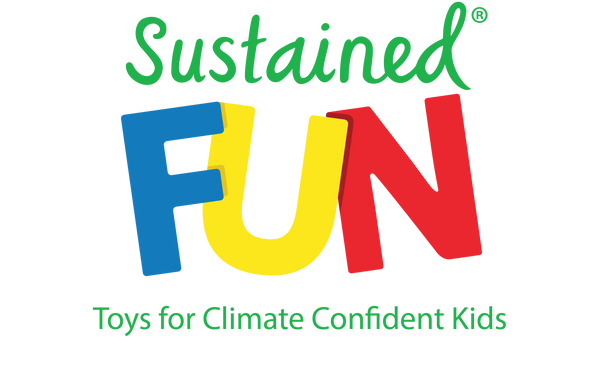Climate change is a huge and overwhelming topic, media coverage is generally negative and kids are bombarded with continual information on catastrophic climate change. It's hard to process and leaves many children feeling powerless and without hope.
Here are some of the things we do with our children to avoid climate anxiety:

1) Bad news sandwich!
Just like getting constructive feedback, negative information can be buffered for the receiver if plonked between two good things. A great formula for this is:
Top bread: How amazing the animal, plant, ecosystem is
Middle "meaty" portion: the challenges that thing is facing
Bottom bread: examples of work that people, groups, organisations, businesses or governments are doing to solve the problem
For example:
Child comes to you after hearing about bush fires
Top bread: "bush fires are actually an amazing event that happens naturally in some places because some plants actually evolved to need fires to make their seed pods open!
Middle "meaty" portion: "unfortunately fires are happening a lot more than they should naturally because of climate change".
Bottom bread: "BUT there are some cool organisations helping find ways to reduce the risk and impact of bush fires, like by planting blocks of different plants that are less likely to ignite"
2) Explain why we buy the products that we do
When at the shop, if a product is pointed out (read "desperately wanted") by my child that doesn't align with our environmental values, I explain why, without being super negative. For example:
Child: "I want those yogurt drink/squirt things"
Parent: "We buy these tubs of yogurt instead because we can get more servings in one package, and we can reuse or recycle the tub". Maybe you could use the tub for storing something after we eat all the yogurt?!"
3) Purchase toys, books and clothing that align with our values
By shopping second hand, getting 'hand-me-downs' or buying sustainably, we are setting an example for our children. I recently had someone tell me how their son left home and once in a flat, he couldn't get over how much waste everyone else was creating. That means his 'norm' was sustainable and didn't need to have a big deal made about it.

4) Listen to questions, feelings and worries
There's no doubt your child has heard about the climate crisis and various environmental challenges - a great way to support their understanding, and help them manage their feelings about it, is to listen! You can start by asking your kids what they're hearing and what questions they have.
"Talk about solutions and about people who are helping and actions they can take to help. Encourage them to talk about their feelings. Reassure them that all feelings are normal" Anya Kamenetz, creator of the Climate Mental Health Network's parent resources.
5) Learn about nature together!
Research has shown that the best way to get children to care about the environment, is if the are taught about it. Makes sense, since if they know how amazing it is, then learn about the threats, they will want to minimise the threats as much as possible. Think 90's dolphin popularity!
So as parents we need to be getting excited about exploring the outdoors, getting nature books from the library, Googling up any random animal questions thrown at us that are beyond our knowledge... and learn together! "I don't know" is a perfectly acceptable answer, if it is followed by "let's find out!".

